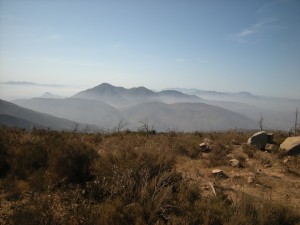Under H.R. 1505, put forth by Representative Rob Bishop (R-UT), the Department of Homeland Security would be explicitly exempt from complying with dozens of environmental, public health, and safety laws for activities needed to help achieve “operational control” of the US border on Federal public and tribal lands within 100 miles of the border. The exemption includes an incredibly broad array of environmental laws – land conservation (Wilderness Act, National Forest Management Act), biodiversity preservation (Endangered Species Act), human health (Safe Drinking Water Act and Clean Air Act), international agreements (Migratory Bird Treaty Act) river and ocean protection (Wild and Scenic Rivers Act, Coastal Zone Management Act), and key public processes (National Environmental Policy Act). The dissenting view of the committee report states: “The purpose of H.R. 1505 is not to make the border more secure. Rather the purpose of the bill is to use border security as cover to effectively repeal more than a century of environmental protection for Americans living and working along our borders with Canada and Mexico.”
For some context on the progress of this bill through the committee stage in October 2011, see New bill allows more militarization of public lands
For a detailed discussion of effects on specific areas, see Scott Nicol’s opinion piece from April 2011
H.R. 1505 is over-reaching and unnecessary
The 100-mile exemption is an extreme overreach – it covers huge swaths of the American landscape across eighteen states, and puts those areas at risk. In addition, the bill would prohibit any restrictions on destructive border security activities on public or tribal lands under the jurisdiction of the Departments of the Interior and Agriculture anywhere in the country, regardless of proximity to the border. Moreover, the Border Patrol has testified that they do not need this bill. Multiagency coordination has been occurring on Federal lands since a 2006 Memorandum of Agreement between the Departments of Homeland Security, Interior, and Agriculture that has led to increased cooperation and leveraged resources. The bill would override this coordination. Such a sweeping waiver of environmental laws, especially laws such as NEPA that require interagency consultation, would result in a dramatic decrease in interagency coordination, consultation and trust – all key ingredients to improving national security along our borders.
The bill would interfere with ecotourism dollars contributing to the U.S. economy
Outdoor recreation is big business, generating nearly $821 billion a year, more than 6.4 million jobs and $99 billion in federal and state tax revenues. Federal public lands play a major role in generating these significant economic benefits for local communities, including Hispanic communities along the border. For example, nature-based tourism in the Lower Rio Grande Valley in Texas, which is anchored by 2 national wildlife refuges, was recently found to generate $463 million per year in economic benefits for the four surrounding counties. Undermining sound management of wildlife and habitat would likely have detrimental impacts on local economies around the nation.
The bill would put Endangered Species at risk
The bill waives compliance with all provisions of the ESA within the 100 mile buffer, including requirements to protect habitat critical to species survival. There is not even a requirement to consider the impacts to imperiled species or to meet with the Fish and Wildlife Service to discuss ways to avoid or minimize those impacts. Species throughout the nation that would be impacted include:
• Mexican spotted owl
• Desert tortoise
• Jaguar
• Ocelot
• Sonoran pronghorn
• Grizzly bear
• Canada lynx
• Desert bighorn sheep
• Northern spotted owl
• Karner Blue Butterfly
The bill would put valuable public lands at risk
In addition to the 100-mile exemption from specific laws, DHS would be given unilateral authority to build forward operating bases, construct roads, fences, patrol by vehicle and aircraft, and more, on Federal public and tribal lands anywhere in the U.S., regardless of proximity to the border and regardless of protected status. These activities cause a wide range of damages to valuable land and wildlife resources, including damage to beaches used for nesting and interruption of migration pathways. Special places that would be put at risk include:
• Cabeza Prieta National Wildlife Refuge, AZ
• Buenos Aires National Wildlife Refuge, AZ
• Lower Rio Grande Valley National Wildlife Refuge, TX
• San Pedro Riparian National Conservation Area, AZ
• Carlsbad Caverns National Park, NM
• Coronado National Forest, AZ
• White Mountain National Forest, NH
• Olympic National Forest, WA
• Glacier National Park, MT
• Joshua Tree National Park, CA
• Acadia National Park, ME
• Arctic National Wildlife Refuge, AK
• North Cascades National Park, WA
For more information, please contact Mary Beth Beetham at Defenders of Wildlife at (202) 772-0231 or mbeetham@defenders.org
_______________
Endnotes:
1. ‘Operational control’ means prevention of all unlawful entries into the US. GAO-11-573T Border Security on Southwest Federal Lands, p. 3.
2. Testimony of Ronald Vitello, Deputy Chief, U.S. Border Patrol, April 15, 2011, Washington, D.C.
3. GAO-11-573T Border Security on Southwest Federal Lands, p. 7-9.
4. Texas A&M University, Economic Impact of Nature Tourism on the Rio Grande Valley: Considering Peak and Off-Peak Visitation for 2011, April 2012.

















